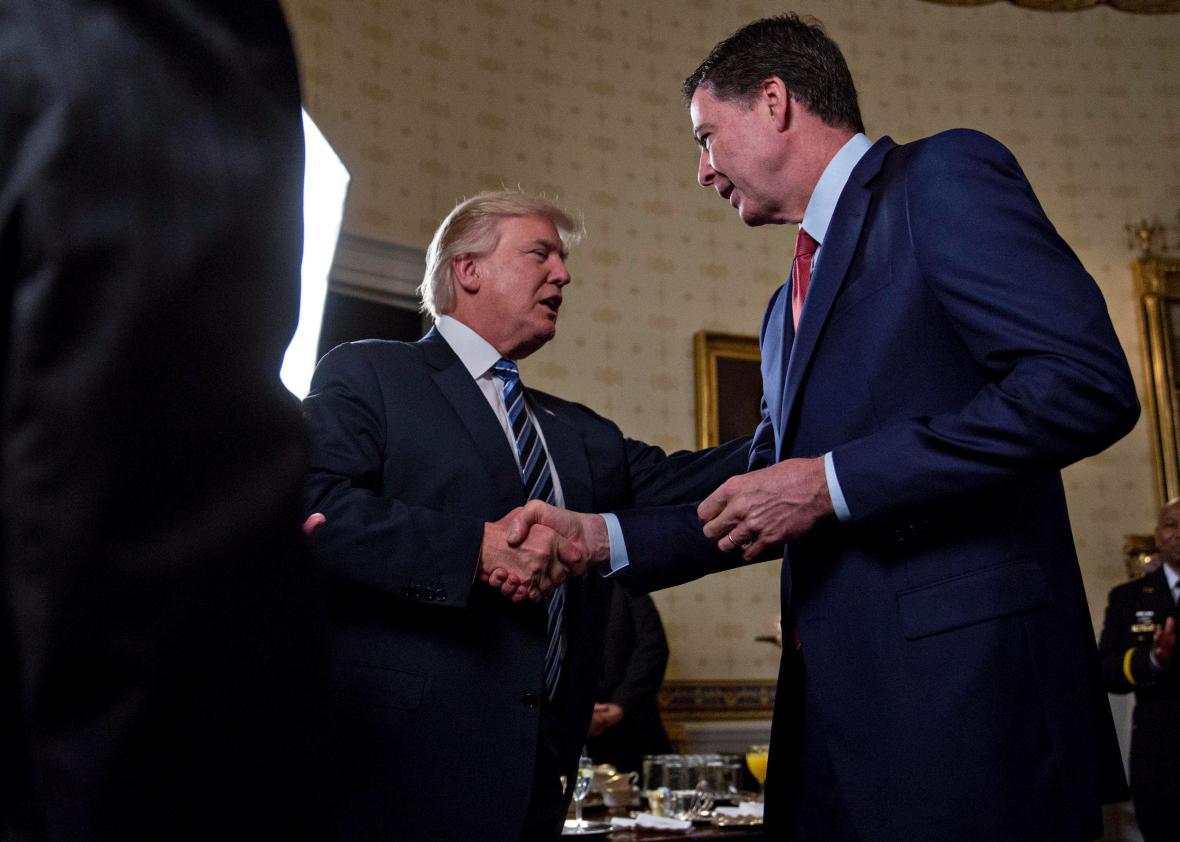FBI Director James Comey has reportedly asked the Justice Department to publicly deny there is any truth to President Donald Trump’s claims that former President Barack Obama ordered his phones be tapped, the New York Times reports. According to the paper’s sources, Comey has called on the Justice Department to contradict the commander in chief, because his explosive accusation makes it look like the FBI broke the law. Needless to say, the Justice Department has not issued any kind of statement on the allegations.
The lack of a statement isn’t that surprising considering all that it implies. The Times explains:
A statement by the Justice Department or Mr. Comey refuting Mr. Trump’s allegations would be a remarkable rebuke of a sitting president, putting the nation’s top law enforcement officials in the position of questioning the truthfulness of the government’s top leader. The situation underscores the high stakes of what the president and his aides have unleashed by accusing the former president of a conspiracy to undermine Mr. Trump’s young administration.
Democrats will surely compare what seems to be Comey’s careful deliberations now with the way the FBI chief spoke publicly about Hillary Clinton’s emails even though the Justice Department asked him to stay quiet.
Without citing any evidence, Trump took to Twitter on Saturday morning and laid out his accusations in a series of bizarre tweets. At one point, Trump wondered whether it was “legal for a president to be ‘wire tapping’ a race for president prior to an election.” He equated his accusations to “Nixon/Watergate.” Again without providing any evidence, the White House backed the president on Sunday, and press secretary Sean Spicer called on Congress to “investigate whether executive branch investigation powers were abused in 2016.”
Obama already denied the allegations through a spokesman. “A cardinal rule of the Obama Administration was that no White House official ever interfered with any independent investigation led by the Department of Justice,” spokesman Kevin Lewis said in a statement. “As part of that practice, neither President Obama nor any White House official ever ordered surveillance on any U.S. citizen. Any suggestion otherwise is simply false.” Obama’s director of national intelligence, James Clapper, also denied it, saying that as far as he was concerned there had been no wiretapping of Trump Tower.
On Sunday, Democrats criticized the president for his claims, and even some Republican lawmakers called on Trump to release evidence. “Suffice it to say I don’t have any basis; I’ve never heard that allegation made before by anybody,” Florida Sen. Marco Rubio said. “I’ve never seen anything about that anywhere before. But again, the president put that out there, and now the White House will have to answer as to exactly what he was referring to.” But Rep. Devin Nunes of California, the Republican chairman of the House Intelligence Committee, said his committee would look into the accusations as part of a broader probe on Russian influence.
Although this type of over-the-top accusations seem to be part of Trump’s way of operating, the Washington Post’s Karen Tumulty explains why it could end up backfiring:
The audacious tactic was a familiar one for Trump, who has little regard for norms and conventions. When he wants to change a subject, he often does it by touching a match to the dry tinder of a sketchy conspiracy theory.
But the stakes have gotten higher, and the consequences more real and serious, as questions mount over Moscow’s reported attempts to interfere with last year’s presidential election.
Trump’s response also has deepened doubts about his own judgment, not just in the face of the first crisis to confront his young presidency but in dealing with the challenges that lie ahead for the chief executive of the world’s most powerful nation.
His tweets may have been an effort to distract from revelations that his aides and associates had contact with Russian officials during the election and transition, as well as to deflect criticism onto Obama.
But instead, the president has invited more scrutiny to the larger controversy over Russian interference. The issue shows no signs of fading.
